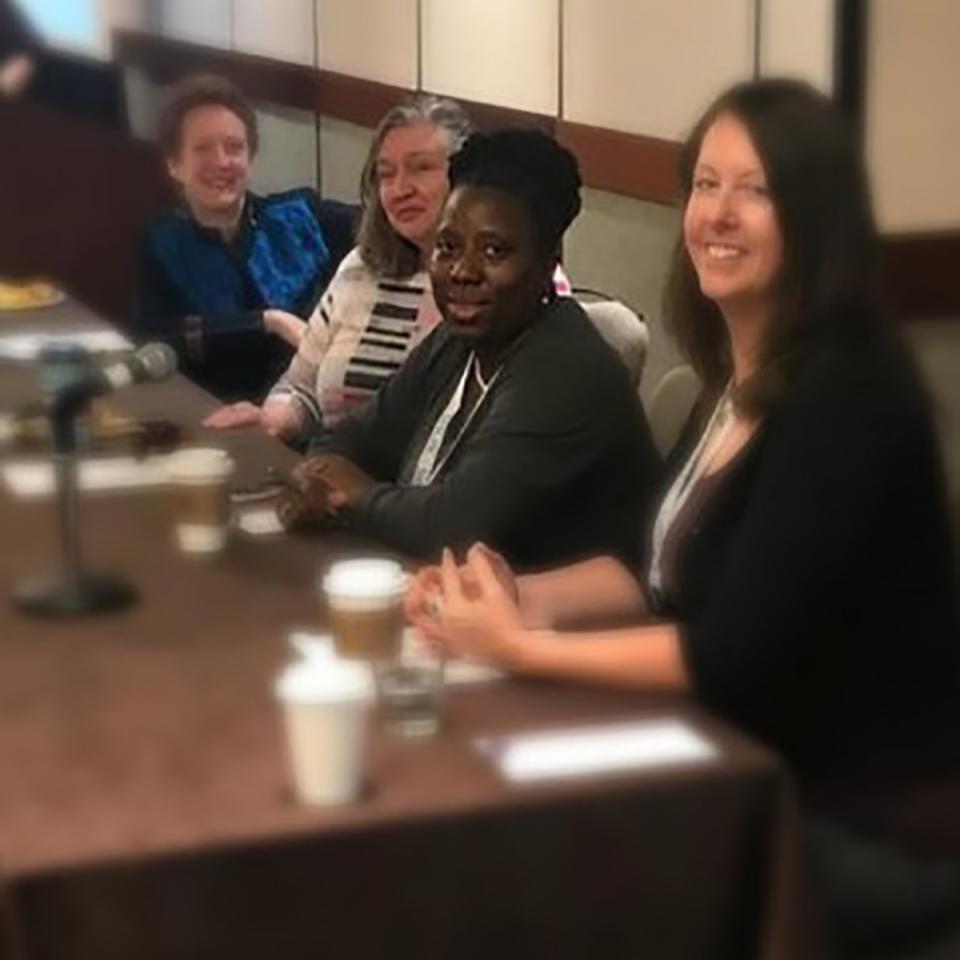Have you ever felt like throwing up your hands in frustration? Sometimes it can feel like “nothing” is working or “everything” is against you. Each of us has strengths. Even if the odds are truly against us, there are actions we can take.
The Mayor’s Office of Homeless Services has declared a winter shelter warning for Tuesday, January 14, 2025 at 4 pm until Thursday, January 14, 2025, at 9 am. Call 211 (available 24/7) or 443-984-9540 to connect with shelter. Get more info here.



05.30.18
Q&A with Director of Housing Services Lawanda Williams, LCSW-C on food, diabetes and homelessness
At this year’s National Health Care for the Homeless Conference, you presented on a panel titled Managing Diabetes and Chronic Disease through a Social Determinants Lens. What does that mean?
Social determinants of health are the areas of your life that impact your health outcomes before you reach your doctor’s office. Poverty, access to food and where you live are all examples. We know in Baltimore that the separation of two or three miles—like between Roland Park and Park Heights—can mean a 20-years difference in life expectancy.
Why are you interested in diabetes?
Two reasons. My mother had diabetes. Even though she had resources, helping her navigate through that was difficult. It made me think, how in the world can people manage this with nowhere to store their food, no place to cook, no access to needles?
I was also startled by the number of clients living with HIV who felt that their diabetes was the worse of the two. They’d say, “Now that my HIV is under control, it’s really diabetes that’s messing up my life!”
What barriers do people face in accessing healthy food?
We have a big problem with food deserts here in the city. Many people are getting their food from local corner stores because the alternative is a four or five mile cab ride away. Think about shopping at a store where the food is behind bulletproof glass. People staying in shelters have even fewer choices and no control over the food available.
What solutions stood out to you from your discussion at the conference?
One client mentioned outreach to churches, and that resonated with me. Baltimore is full of churches who give food to shelters and do street outreach. Connecting with churches to discuss heart-friendly foods or diabetes education would be a start.
I think there’s space to empower shelter systems, too. And we’ve started to do this—talking with emergency shelters and soup kitchens about the food they serve and empowering them to talk to donors directly about healthier options. It was nice to hear recommendations from the panel—and to come back to find out that some of that work is already happening!
View other topics and photos from the National Conference here.
More Recent News
Send one email today to advocate for housing that serves all Marylanders. Let Governor Moore know that more permanent supportive housing is a good thing—and urge him to stay the course.
At our annual staff holiday party, we take time to honor and celebrate staff members who best represent our Core Values and one HCH-er at Heart.
Larrice is a mother, grandmother, teacher, cook and storyteller who was recently featured in our original documentary, “Taking Care: Portraits from Baltimore.”


